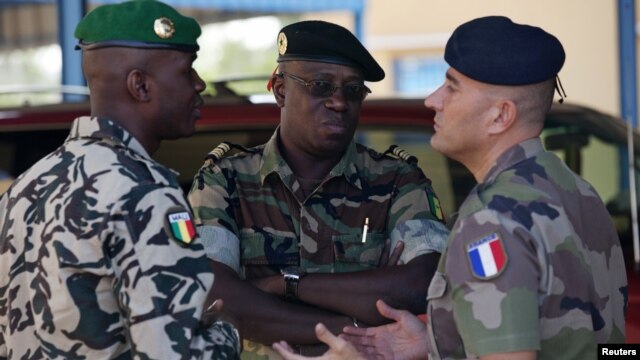By Heba Girgis
Impunity Watch Reporter, Africa
BAMAKO, Mali—French troops have just launched their first ground operation attack against Islamist rebels today, Wednesday, after six days of air strikes. Officials have noted that these air strikes, however, have raised the risk of revenge attacks on French citizens in other parts of Africa. The French ambassador Christian Rouyer told journalists yesterday that, “French interests are threatened all over. Yes we are worried that our interests in Bamako could be targeted by attacks.”

This first direct operation involving Western troops brought French soldiers to a desert village in central Mali. The Malian colonel said that his own army’s ground troops have now joined the French forces and encircled the village of Diabaly which had been seized by Islamist fighters the day before. Now, the colonel said, the French-Malian group is engaged in trying to extricate the rebels who had taken over homes in the village.
French President Francois Hollande has about 1,700 troops committed to the mission in Mali, with 800 troops already in the country. Hollande’s goal is to destroy or capture the militants who split the country in two last year, and just last week began moving south toward the capital of Bamako. “Our goal is that when we leave, there will be security in Mali, a legitimate government, and no terrorists threatening the security of Mali,” Hollande said two days ago in Dubai. Hollande also noted that the French forces would remain in Mali until stability returned.
France is not the only country coming to Mali’s aid. West African military chiefs said that the French troops would soon be supported by about 2,000 more troops from Nigeria, Chad, Niger and several other regional powers. Ivory Coast General Soumaila Bakayoko, who presided over a meeting on the regional force in Bamako said, “they are coming to fight and not for a parade. We are coming for battle and that is clear.”
The military conflict in this region broadened as Islamist militants seized a foreign run gas field near the Algeria-Libya border, taking at least 20 hostages, including Americans in order to retaliate against the French intervention in Mali and Algeria’s cooperation in the effort. The French expect that this kind of retaliation will not end here.
For further information, please see:
The New York Times – French and Malian Ground Troops Confront Islamists in Seized Mali Village – 16 January 2013
Reuters – France Launches Ground Campaign Against Mali Rebels – 16 January 2013
San Francisco Chronicle – French Ground Forces Move North to Attack Mali Islamist Rebels – 16 January 2013
Voice of America – Africa’s French Citizens Take Islamist Threats in Stride – 16 January 2013


